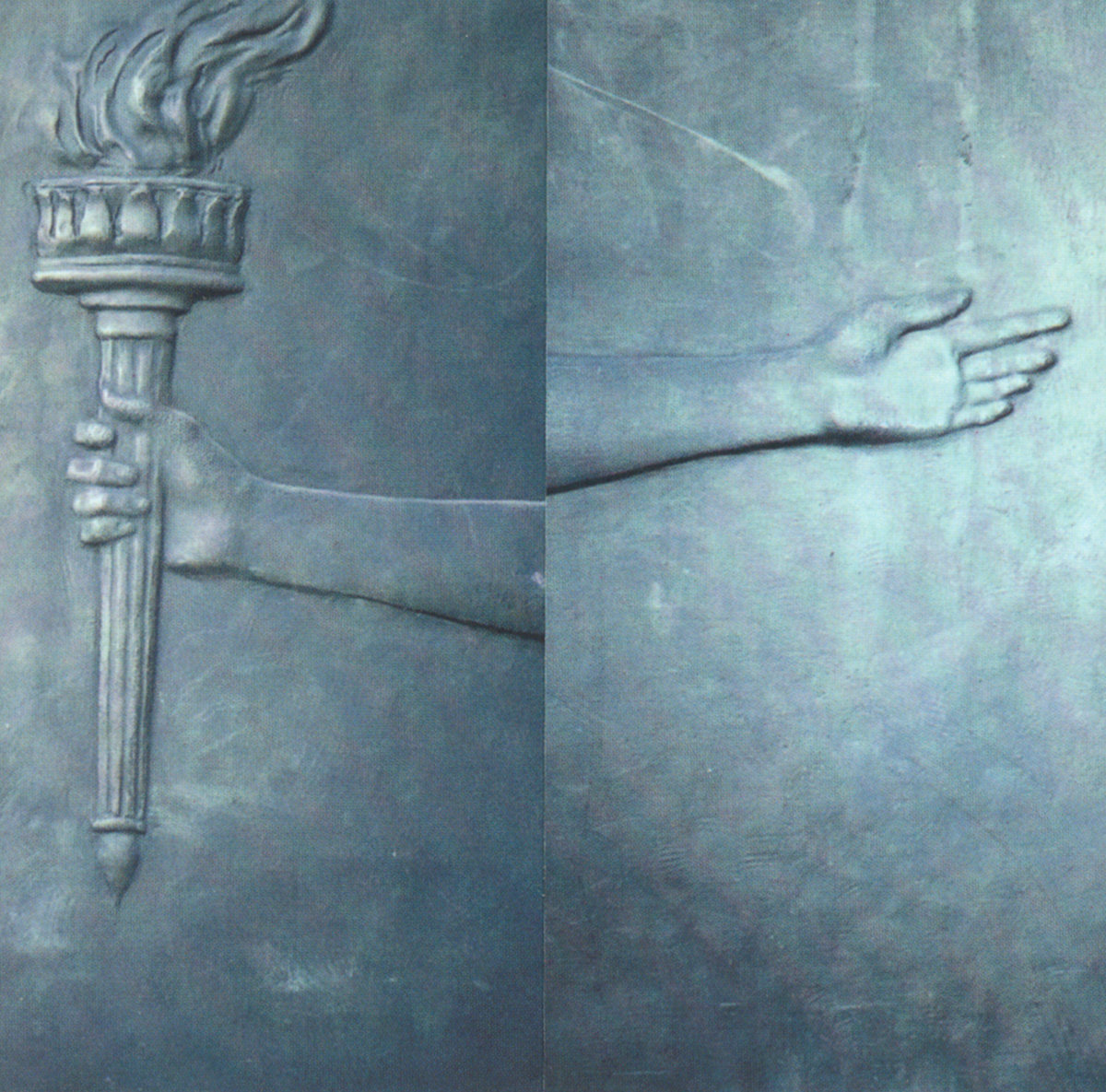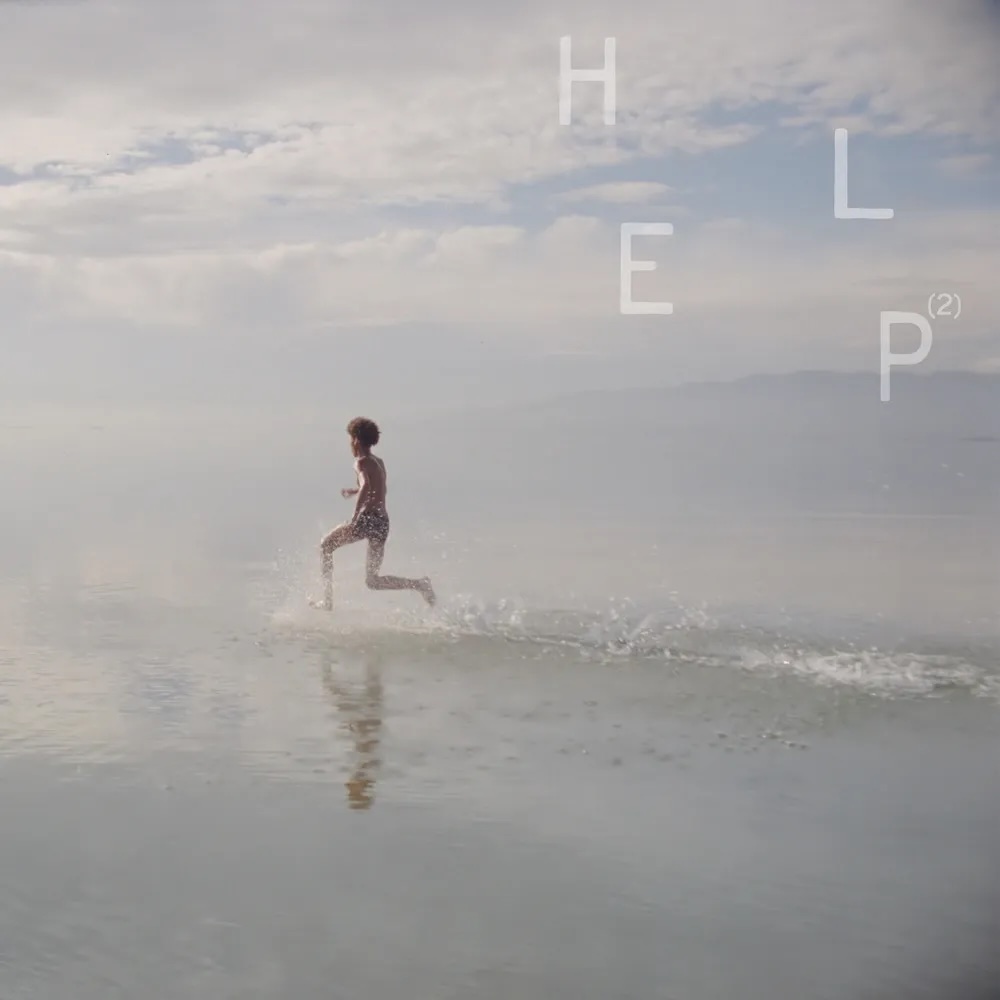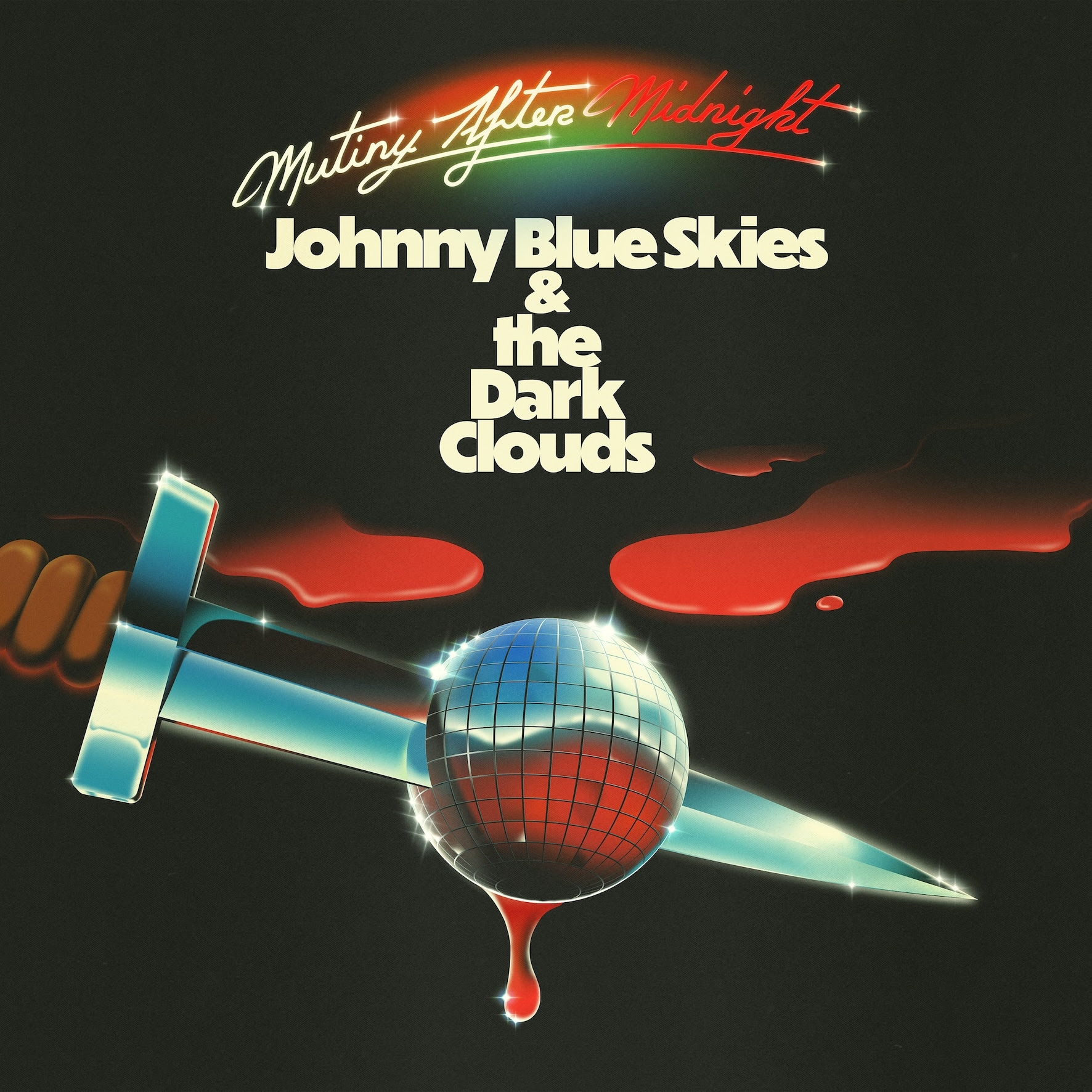- Dischord
- 2001
Fort Reno Park is a bucolic grassy expanse in Tenleytown, a fairly fancy neighborhood in Washington, DC. For decades, Fort Reno has hosted a summer series of volunteer-organized free concerts, and those shows have long been a crucial part of the DC punk experience. Starting in 1988, Fugazi played a free show at Fort Reno every summer, and in time, those shows became massive. Arriving at a Fugazi Fort Reno show felt like stepping into a movie, or a photo album. You'd walk over a hill, and a whole panorama would appear in front of you -- thousands of punks, from all over, there to take part in a beautiful mass ritual.
In August of 2001, Fugazi played what would turn out to be their second-to-last Fort Reno show, and they busted out a bunch of the songs that would appear on The Argument, the album that they'd release a few months later. The members of Fugazi came from DC neighborhoods like Tenleytown, and they always reveled in the small-town feeling of those Fort Reno shows. (This didn't stop them from jawing with people in the crowd. Guy Picciotto's famous tirade against an "ice cream-eating motherfucker," immortalized in the Instrument documentary, came from a Fort Reno show.)
At that 2001 show, Ian MacKaye introduced "Cashout," a new song about the price of housing and about how people were constantly being pushed out of neighborhoods like Tenleytown. This was my first time hearing "Cashout," and I have a distinct memory of MacKaye looking around him, at the manicured lawns and the brick facades, and staring holes while singing: "Furniture's out on the sidewalk next to the family/ That little piggie went to market, so they're kicking out everyone." I can still remember getting chills.
These days, the word "Fugazi" almost works as a kind of '90s-purist shorthand, an invocation of a certain stubbornly independent mentality that has largely ceased to exist. For a solid decade and a half, Fugazi figured out a sustainable moral existence. They interacted with corporations as little as possible, and they found ways to make their music and their community as accessible as possible to a great many people. In the process, Fugazi became hugely popular, selling millions of albums and playing to consistently vast crowds across the globe. If that ability to put ethics into practice was Fugazi's entire legacy, then that would be a great legacy indeed. But Fugazi were also a truly powerful rock band, and that "Cashout" moment is burned into my memory for reasons of art and politics so interconnected that it makes no sense to separate them.
When MacKaye looked around at the expensive neighborhood that surrounded him, that was a theatrical gesture, and it communicated certain things that words never could. Maybe MacKaye didn't even mean anything with that look. Maybe he wasn't conscious of giving it. Maybe he was just glancing around, making sure this massive event was continuing the way it was supposed to continue, and I've just built this whole narrative in my head for the past 20 years. (Wouldn't be the first time.) It honestly doesn't matter. With "Cashout," MacKaye was telling us something. In that moment, I heard it.
Two months after that Fort Reno show, Fugazi released The Argument, the album that would turn out to be Fugazi's final statement as an active band. (The Argument turns 20 tomorrow.) "Cashout" is the first song on the album, and it stands as one of Fugazi's towering anthems. In 2001, virtually nobody was singing about gentrification, even as that whole process was already starting to reshape and reconfigure cities like Washington, DC. MacKaye's "Cashout" lyrics, calling out developers and elected officials and forced evictions, have grown more urgent and tangible since 2001. In DC, for instance, vast swaths of the city's working class Black population have been forced into the Maryland suburbs, with whole neighborhoods cleared out to make room for young elite professional types who look like me. Fugazi saw that happening early, and they sang about it. But it wasn't enough just to sing about it. Fugazi turned the anger and despair surrounding gentrification into a hell of a song.
If "Cashout" had no words at all, I might've still gotten goosebumps that night in August. The song's groove is just tremendous. Fugazi records sometimes sound like organic machines come to beautiful life. On "Cashout," the Fugazi rhythm section -- drummer Brendan Canty, bassist Joe Lally, percussionist Jerry Busher -- finds an easy, instinctive push-pull, everyone gently nudging everyone else forward. The guitars ring out low, ominous notes as tension builds, and they explode on the chorus, as MacKaye bellows out the simple truth that everyone needs somewhere to live. When the song flares up, Amy Domingues' cello rings out urgent discordance, preventing that groove from getting too comfortable. After 20 years, "Cashout" remains a marvel -- one of those songs that I can't imagine people actually sitting in a room and writing. I remember everything about the first moment I heard the song -- the spot in the park where I was standing, the feel of the grass under my feet, the smell of dense humanity in the air around me -- and yet the song feels like it's always been part of my life.
Jerry Busher and Amy Domingues were not members of Fugazi. Busher was a longtime roadie for the band, and he often played additional drums onstage. Domingues was, and is, a DC-area cellist. That night in Fort Reno, Busher was onstage with the band, and Domingues was not. In their active years, Fugazi typically operated as a self-sufficient entity, developing their own musical language and often producing themselves. On The Argument, they expanded their tight focus a little. Busher played on a bunch of songs, Domingues on a few. Kathi Wilcox from Bikini Kill sang backup on one song, and Bridget Cross from Unrest sang on two. These were not big-event collaborations. There are no "featuring" credits on Fugazi records. Fugazi came out of a certain community, and all the people involved in The Argument came from that community, too.
In The Argument, you can hear that community at work. Fugazi were never supposed to become an institution. The DC punk scene that birthed the band was notorious for short-lived acts, bands that would release one classic record and then splinter into oblivion. Somehow, though, Fugazi kept things going for a long, long time, and The Argument is the fruit of that. The Argument is the kind of album that can only come into existence if the members of that band have achieved some rare kind of balance and harmony. It's the kind of album where all the pieces fit together in ways that feel preordained.
As a band, Fugazi pushed themselves. They were musically playful and inventive, teasing out their dynamic by venturing as far from meat-and-potatoes hardcore as they could without losing their sense of identity. But The Argument is a comfort-zone record. By the time they made The Argument, the members of Fugazi were all fully comfortable with one another. They put the album together in their familiar home bases -- Dischord House, Inner Ear Studios -- and they assembled the songs gradually, chipping away at the tracks in rehearsals. Talking to Pitchfork after the album's release, Guy Picciotto said that "Full Disclosure" and "Strangelight" started off as the same song and that "Epic Problem" kicked around for about a decade before the band finally cracked it: "Assembling that song was an insane pain in the ass. In fact, for a long time, there was a moratorium on it. We weren't allowed to introduce the song in practice."
If Fugazi had to struggle to make The Argument, you can't hear it in the final product. There's fire and intensity in the album, but The Argument is the work of a fully locked-in band. There's a rhythmic sophistication to The Argument that's beyond anything Fugazi attempted on their other records. The band works together as one, zoning out and finding a pocket. When I hear a song like "Life And Limb" or "Ex-Spectator," I imagine the members of the band syncing up their breathing, existing within the same physiological flow.
The Argument is a long-haul album, and it's also an album about the end approaching -- not for the band, but for a society where people are able to functionally look out for one another. On "Oh," Picciotto imagines being pushed to the brink and winning back some small measure of self-defeating payback: "Memo to the partners/ I'm changing all the locks/ I'm pissing on your modems/ I'm shredding all the stocks." And on the album-closing title track, MacKaye attempts, once again, to put internecine scene squabbles into proper perspective, evoking the wars that were already happening and anticipating the wars to come: "It's all about strikes now, so here's what's striking me/ That some punk could argue some moral ABCs/ When people are catching what bombers release."
In retrospect, Fugazi probably had some idea that that album-closing title track would be their final on-record statement. By the time they released The Argument, two of the four members of Fugazi were fathers. The band only played a handful of live shows after the album's release, including one more Fort Reno gig. Fugazi never announced a final show, a grand sendoff. Instead, they went on extended hiatus after a brief UK tour in the fall of 2002, and that hiatus is still happening now. Every once in a while, one of the members of Fugazi will point out that Fugazi are not officially broken up. Apparently, the members of the band still get together occasionally and play music when they're all in DC. But it's hard to imagine a full-scale Fugazi reunion. The legend of Fugazi has grown too vast. Fugazi have been offered vast sums to play festivals, but that kind of thing wouldn't make sense to them. They would have to return in a DIY capacity, and you can't do DIY on the massive scale that a Fugazi reunion would require. The logistics don't make sense.
A year after The Argument, Dischord, the label that Ian MacKaye founded with his Minor Threat bandmate Jeff Nelson, put out a history-spanning three-disc compilation called 20 Years Of Dischord. On that comp, every band that had ever recorded for Dischord got one song, whether the band stuck around long enough to release one 7" or whether they became a longstanding pillar of independent music in America. In the context of 20 Years Of Dischord, Fugazi were no more important than Red C or Fidelity Jones or High Backed Chairs. This, plainly, was how Fugazi wanted it.
When that compilation came out, a short-lived website called Neumu sent me to wrote a profile on Dischord. At the time, I was working an entry-level office job where I pretty much just stapled mailing envelopes for 45 minutes and then dicked around on the computer for the rest of the day. I didn't have internet in my apartment, so this job was where I started writing -- for my personal blog, for my local alt-weekly, for Neumu, and then eventually for bigger outlets like Pitchfork, back when Pitchfork ran Fugazi interviews and didn't pay for reviews. Ian MacKaye agreed to an interview, and he called me at my office job. He was the first non-local musician I'd ever interviewed. I was nervous as hell.
The day I was supposed to interview MacKaye, I walked from my office to the office of the Baltimore City Paper to pick up a promo copy of a CD that I was going to review. Bret McCabe, my editor at the City Paper, worked in a room with the paper's copy editor and a few other people. When I mentioned who I was about to talk to, how nervous I was, Bret and everybody else in that office told me not to worry. Every single person in that room had interviewed Ian MacKaye at some point -- for their zines, for their college radio shows, for some local tour-stop story, whatever. They all told me that MacKaye was a sweetheart, and they were all completely correct.
When MacKaye called that day, he immediately figured out that I had no fucking idea what I was doing. He asked if I was recording the conversation, and I said no, I was just going to write down everything he was saying. MacKaye said something like: "No, listen. That's not going to work. Here's what you do. Go to Radio Shack. They've got a thing that you can use to connect a phone to a tape recorder. Go get that, and then I'll call you back in a week, OK? Same time." I did what he said. He called back in a week and gave me a great interview. Then, when we were done, he said, "Now, see? Wasn't that better?"
Ian MacKaye had no responsibility to me, and yet he coached me through this assignment that I wasn't remotely qualified for in the first place. I wonder how many people in the City Paper offices he'd also coached through interviews. In 15 years of doing Fugazi, MacKaye must've extended that same grace to hundreds of writers around the world. Fugazi didn't just inspire and challenge other bands, other musicians. Entire generations of journalists and critics also owe that band a whole lot.
The members of Fugazi worked as guiding lights and inspirational forces for many years, and they made truly great music while they were doing it. Lots of people consider The Argument to be the band's finest hour; James Jackson Toth named it the best Fugazi album in a Counting Down article on this site in 2012. Personally, I'd put The Argument just behind the absolutely insane opening one-two shot of 13 Songs and Repeater. There's an urgency to those records that utterly transports me. Still, however you look at it, The Argument is a major work, a remarkable piece of music. Very few bands could make something that powerful more than a decade after their debut. Only one band could make an album like that while occupying a cultural-figurehead position that must've made everyone in the band profoundly uncomfortable.
These days, the members of Fugazi are still making music, often together. Joe Lally and Brendan Canty are two thirds of the instrumental trio the Messthetics. Lally and Ian MacKaye are two thirds of Coriky, along with Amy Farina, who is both MacKaye's wife and his partner in the Evens, a band that released three deeply underrated albums after Fugazi's run ended. Coriky released an album last year, and they were one of the last bands I saw before the pandemic started. A month before everything went to hell, I got a text from a friend: Coriky were playing the Music Resource Center, a converted Charlottesville church where kids learn to play instruments and record music. I had no idea that this gig was happening. The show was free, and the Center collected donations at the door. Coriky went on at 8PM sharp, with no opening act. The album wasn't out yet, but there were stacks of photocopied lyric sheets by the door, so people could sing along with these songs that they'd never heard. The band was great. The album that they released soon afterwards was great, too. It was one more amazing night, from a group of people who have given me a lot of those. I remain grateful.






